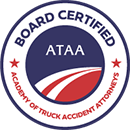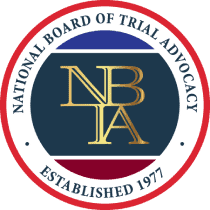Washington Trucking Regulations
The trucking industry is regulated at the federal level by the Federal Motor Carrier Safety Administration (FMCSA), a division of the U.S. Department of Transportation (DOT).
At the state level, trucking operations in Washington state are governed in cooperation by the:
- Washington State Department of Transportation (WSDOT)
- Washington State Patrol (WSP) Commercial Vehicle Enforcement Bureau
- Washington Utilities and Transportation Commission (UTC)
- Washington Department of Licensing (DOL)
Together, these state agencies share goals that aim to “provide for the safety of the motoring public, protect the public infrastructure, and work with industry to produce safe, efficient, and economical solutions to commercial vehicle transport.”
The state of Washington has published this comprehensive document for truckers. State agencies emphasize that drivers and trucking companies are responsible for knowing and complying with all regulations, both state and federal. When an entity’s profession is commercial transport, ignorance is never an excuse for violating an important safety regulation.
Below is a brief overview of just a few of the Washington trucking regulations all commercial motor vehicle (CMV) operators and carriers must follow in our state.
Washington Lane Restrictions
Large trucks are not allowed to travel in the left lane of highways that have three or more lanes in one direction (not including HOV lanes). This rule mainly applies to the following Washington roadways:
- Interstate 5 (I-5)
- Interstate 90 (I-90), particularly in areas surrounding Spokane
- Interstate 405 (I-405), particularly in King County and Snohomish County
Vehicles prohibited from using the left lane are:
- Commercial trucks
- Recreational vehicles (RVs)
- Any vehicle towing a boat or trailer
CMVs over 10,000 pounds are further banned from using HOV lanes under any conditions, even if meeting the threshold for the number of vehicle occupants.
Washington Speed Limits
Although Washington state law establishes a maximum speed of 70 mph for most motor vehicles, large trucks (10,000 pounds or more) and combination trucks (such as tractor-trailers) are never allowed to exceed 60 mph.
Drivers must also consider road, weather, and traffic conditions and decrease their speed to less than the posted speed limit when conditions require it.
Additionally, truckers have an obligation to allow faster traffic to pass by moving into the right-most lane or pulling over when necessary. If five or more vehicles are behind the truck, the driver must pull off at the first available turnoff to allow the cars to pass.
When Tire Chains Are Required
Washington state makes it mandatory for all CMVs over 10,000 pounds to use tire chains on specified roadways between Nov. 1 and Apr. 1 of each year.
Routes requiring winter tire chains are:
- I-90 between North Bend (MP 32) and Ellensburg (MP 101)
- I-82 between Ellensburg Exit 3 (MP 3) and Selah Exit 26 (MP 26)
- SR 97 between (MP 145) and Junction SR 2
- SR 2 between Dryden (MP 108) and Index (MP 36)
- SR 12 between Packwood (MP 135) and Naches (MP 187)
- SR 97 between Junction SR 14 (MP 4) Columbia River and Toppenish (MP 59)
- SR 410 from Enumclaw to Naches
- SR 20 between Tonasket (MP 262) and Kettle Falls (MP 342)
- SR 155 between Omak (MP 79) and Nespelem (MP 45)
- SR 970 between (MP 0) and (MP 10)
- SR 14 (MP 18) to Junction 97 (MP 102)
- SR 542 Mt. Baker Highway between (MP 22.91) and (MP 57.26)
Requirements for Commercial Driver’s License (CDL), Certifications, and Endorsements
CMV drivers in any state must test for, acquire, and carry a valid commercial driver’s license (CDL). Under the Uniform Commercial Driver’s License Act, licensees are regulated to ensure that each driver has only one CDL, preventing drivers from losing their license in one state (such as through a drunk driving violation) only to acquire it in another.
Washington regulatory agencies have the right to acquire driving records and license information for commercial vehicle operators licensed in other states through the federal Commercial Driver’s License Information System (CDLIS).
Commercial vehicle operators must carry the appropriate license to operate a vehicle in a particular class (A, B, or C). Special endorsements are also required for hazardous materials, double and triple trailers, tanks, school buses, passenger carriers, and some other types of vehicles and cargo.
Washington CDL carriers must report any out-of-state traffic convictions to the Department of Licensing in Olympia, WA within 30 days. Certain violations on a CDL license, along with certain violations committed in a personal vehicle, are grounds for license suspension or revocation.
In conjunction with a valid CDL, semi-truck operators must carry with them proof of a completed DOT physical exam conducted by a licensed medical examiner. Exam results are good for two years and must be renewed before expiration.
Drug and Alcohol Use
It is illegal to use alcohol or controlled substances (including marijuana, cocaine, amphetamines, PCP, heroin, or opiates) while operating a commercial truck. Washington state follows federal guidelines in prohibiting CMV operators from driving or performing other safety-sensitive functions when:
- Drinking alcohol or using a controlled substance
- Within 4 hours of drinking alcohol
- Having a BAC of 0.02 or above
- Refusing to take an alcohol or drug test
Drug and alcohol testing may be administered pre-employment, at random, post-accident, when a driver returns to duty after a violation, and when there is reason to suspect drug or alcohol misuse. A driver who refuses to submit to testing will be immediately removed from all safety-sensitive duties.
Penalties for alcohol and controlled substance use include fines, removal from duties, rehabilitation procedures, follow-up monitoring, and five-year record retention.
Additional Washington Trucking Regulations
In addition to the state commercial vehicle regulations detailed above, there are many further state laws that encompass regulations on:
- Hazardous material transport
- Transportation of agricultural products, logs, and modular homes
- Load securement and tarping systems
- Crossing Puget Sound by ferry
- Crossview mirrors and backup alerts
- Fueling and fueling permits
- Recordkeeping
- Railroad crossings
- Oversized and special vehicle permits
- Safety audits
- International travel between WA and Canada
- Insurance requirements
- Vehicle identification and markings
- Transporting passengers
- And more
What Happens if a Violation Causes an Accident
Washington trucking regulations exist to protect both CMV operators and the general public. When drivers and companies break the law, they put the lives of Washington motorists at risk.
We at Trucking Injury Law Group have an in-depth understanding of both federal and state commercial truck regulations. If we know these laws inside and out, professional trucking entities should too.
A violation of a mandatory regulation is often grounds for legal action against the at-fault party. Contact Trucking Injury Law Group for a free consultation on your rights and legal options following a truck accident in Washington. Specific cities we have experience in include Spokane, Seattle, Tacoma, and Vancouver, but we are able to assist you no matter where you’re located within the state.






